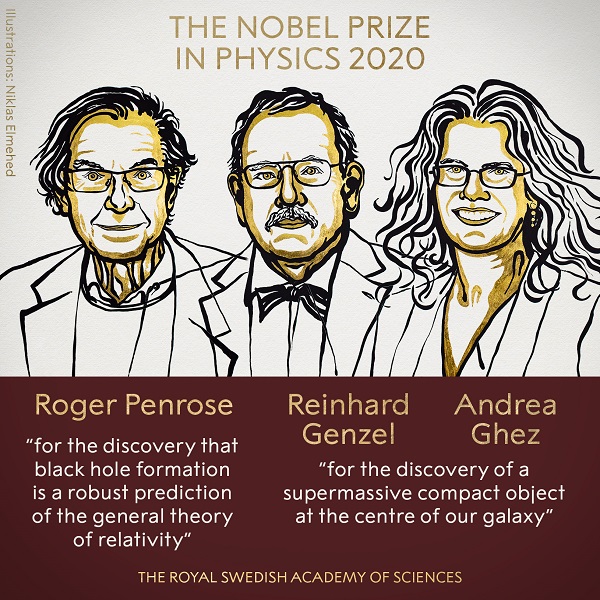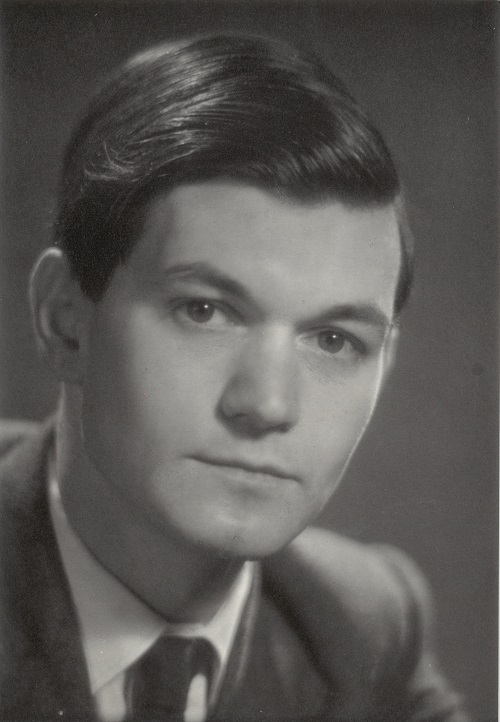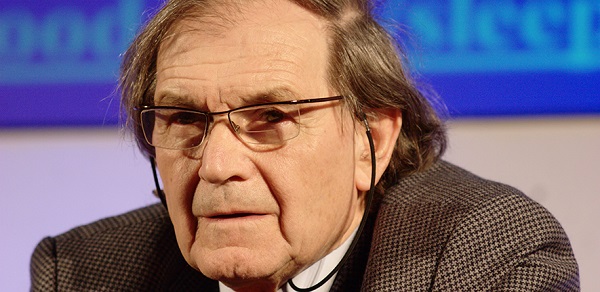Nobel Prize in Physics awarded to St John’s scientist for black hole formation work
“For the discovery that black hole formation is a robust prediction of the general theory of relativity”
Three scientists have won the 2020 Nobel Prize in Physics for their work on blackhole formation and the discovery of a supermassive blackhole at the centre of our galaxy.
Professor Sir Roger Penrose, alumnus and Honorary Fellow of St John’s, Professor Reinhard Genzel and Professor Andrea Ghez together scooped the 114th Nobel Prize in Physics today.
The Nobel Prizes recognise and reward the discoveries that have conferred the greatest benefit to humankind, in the fields of physics, chemistry, physiology or medicine, literature, peace and economic sciences. The award is presented by the Royal Swedish Academy of Sciences and is worth 10m Swedish kronor (£870,000), which will be shared among the winners, with half going to Sir Roger and the other half shared between Genzel and Ghez.

Sir Roger showed that the general theory of relativity leads to the formation of black holes. Professor Genzel and Professor Ghez discovered that an invisible and extremely heavy object governs the orbits of stars at the centre of our galaxy. A supermassive black hole is the only currently known explanation.
The Nobel Prize citation describes how Sir Roger used ingenious mathematical methods in his proof that black holes are a direct consequence of Albert Einstein’s general theory of relativity. Einstein did not himself believe that black holes really exist, these super-heavyweight monsters that capture everything that enters them. Nothing can escape, not even light.
In January 1965, ten years after Einstein’s death, Sir Roger proved that black holes really can form and described them in detail; at their heart, black holes hide a singularity in which all the known laws of nature cease. His ground-breaking article is still regarded as the most important contribution to the general theory of relativity since Einstein.
Heather Hancock, Master of St John’s, said: “We are delighted to see Sir Roger Penrose receive the recognition and accolade of the Nobel Prize for his outstanding contribution to physics. His ground-breaking proof of the formation of black holes is a landmark contribution to the application of Einstein’s general theory of relativity. We offer our warmest congratulations to Roger.”

Roger Penrose was born in Colchester, UK, in 1931. He got a First in Mathematics at University College London and arrived at St John’s in 1952 as a graduate student to do his PhD. His thesis was on tensor methods in algebraic geometry. He was a Title A Research Fellow at St John’s from 1957 until 1960 and has led an award-winning academic career. He was jointly awarded the Eddington Medal of the Royal Astronomical Society with Professor Stephen Hawking in 1975. In 1985 he was awarded the Royal Medal from the Royal Society, in 1989 he was awarded the Dirac Medal and Prize of the British Institute of Physics. In 1990, Sir Roger was awarded the Albert Einstein Medal for outstanding work related to the work of Albert Einstein by the Albert Einstein Society.
He was elected as an Honorary Fellow of St John’s in 1987, he was knighted in 1994 for services for science, admitted into the Order of Merit in 2000, and in 2008 he was named as the Copley Medal winner by the Royal Society. He is currently the Emeritus Rouse Ball Professor of Mathematics at the University of Oxford.
David Haviland, chair of the Nobel Committee for Physics, said: “The discoveries of this year’s Laureates have broken new ground in the study of compact and supermassive objects. But these exotic objects still pose many questions that beg for answers and motivate future research. Not only questions about their inner structure, but also questions about how to test our theory of gravity under the extreme conditions in the immediate vicinity of a black hole."
Since their establishment in 1895, Sir Roger is the sixth Nobel prize-winner in Physics from St John’s, the tenth Nobel laureate overall – including one double-winner in Frederick Sanger.

Find out more about studying Mathematics at St John's
Published: 6/10/2020